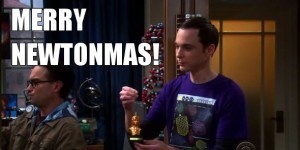If you caught the eclipse this week, you probably took care to use eclipse glasses or a pinhole camera. But you may have caught a glance at the Sun with the unaided eye. Perhaps while looking at the Sun during totality you saw a bit of the Sun come back before looking away. If you did, you wouldn’t be alone. Lots of people have looked at the Sun before, including Galileo.
Galileo is most famous for his telescopic observations. His discovery of the the moons of Jupiter and the phases of Venus changed our understanding of the solar system. But Galileo also made naked-eye observations of the heavens. As part of his work he looked directly at the Sun many times. This was not one of Galileo’s best ideas, but he did try to be careful about it. He never looked directly at the Sun when it was high in the sky. He looked when the Sun was low on the horizon at dawn or sunset, often when somewhat obscured by fogs or clouds. When the Sun is low in the sky its light must travel through much more atmosphere to reach us. This not only makes the Sun less intense, it gives the Sun its reddish glow. Galileo found the addition of fog particularly useful, because it allowed Galileo to observe sunspots on the Sun.
Although we don’t know how often Galileo looked directly at the Sun, we know from his letters that he made several observations. He may even have looked at the Sun through a low power telescope. Later, Galileo’s student Benedetto Castelli discovered the projection method for looking at the Sun (using a pinhole camera), which Galileo felt was a far superior method of solar observation. Toward the end of his life, Galileo did go blind, but this was more than two decades after his direct solar observations.
Looking directly at the Sun is always risky. This is particularly true during a total eclipse when the Sun is mostly covered. If you take an extended look at the Sun during a partial eclipse you can damage your eyes permanently. There are several recorded cases of this. But a quick glance isn’t likely to be harmful. If you caught a quick glance during the eclipse, you shouldn’t worry.
And if you still have your solar glasses, you can hang on to them until the next great American eclipse in 2024, or you can donate them to Astronomers Without Borders for others to use.











